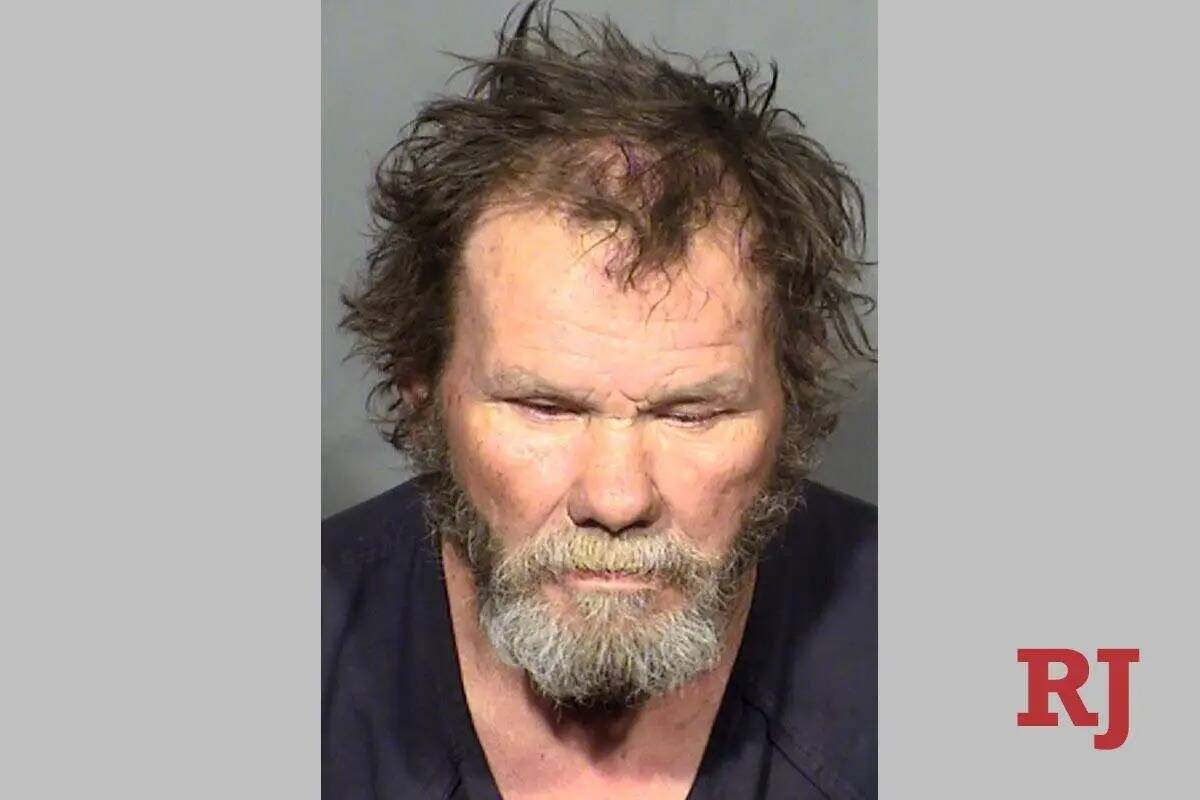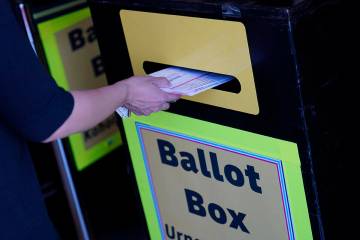VICTOR JOECKS: Released criminals are making Las Vegas more dangerous
There’s a disturbing trend in some of Las Vegas’ most high-profile crime stories. Many of the suspects were recently in police custody.
Tyler Steffins, a police officer from Washington state and military veteran, was recently killed on the Strip. Police arrested Freddy Allen in the fatal stabbing, which occurred on a pedestrian bridge.
But the crime never should have happened. In September, police said Allen threatened a Strip security guard with a knife. He pleaded no contest to misdemeanor assault. In November, he received a suspended 90-day jail sentence and was told to stay away from the Strip for six months.
As it turns out, verbal warnings are as effective as “gun-free zone” signs.
Just days later, police arrested Allen for a stabbing that occurred near Harrah’s. The victim had to get staples in his head and stitches in his arms. Allen pleaded guilty to a gross misdemeanor. In February, he received a 90-day sentence with credit for 72 days served.
Had that stabbing kept him in jail for even a year, his involvement in the killing of Steffins would have been impossible.
See if you can spot any similarities with these cases.
Gary Dean Robinson caused the horrific January car crash that killed nine people in North Las Vegas. Seven members of one family died after Robinson ran a red light driving more than 100 mph.
The police had plenty of prior interactions that featured Robinson driving recklessly. Police stopped him for speeding at least five times within the 18 months before the fatal crash. That included going 85 mph in a 45 mph zone. In that case, the officer gave him a ticket for going 5 mph over the limit. A court reduced it further, which kept the infraction off his state driving record.
Lee Frank Wilson is in custody accused of shooting of more than a dozen people in February at a lounge on Sahara. One person died. His record includes more than 80 arrests and nine felony convictions. In 2019, prosecutors charged him with conspiracy to commit murder and attempted murder. He pleaded guilty to discharging a firearm. He was sentenced to be in jail for at least a year.
Finally, consider this Review-Journal headline from Thursday: “Man picks up 3rd impaired driving charge with 2 cases still open.”
Have you spotted the pattern? Criminals, whose actions merited serious jail time or other substantial consequences, got out with a slap on the wrist.
But many politicians contend the problem is that there are too many people in jail. “Mass incarceration imposes significant costs” and “does not make us safer,” President Joe Biden said in a January 2021 executive order.
The victims mentioned above would probably disagree. At least, those who are fortunate enough to remain alive.
The dangers of mass incarceration is an almost universal sentiment on the left, but it’s infected some Republicans, too. That includes former President Donald Trump, who signed a bill aimed at reducing the number of people in prison.
In 2019, Gov. Steve Sisolak and Democrat majorities in the Legislature gutted Nevada’s sentencing laws. A small minority of Republicans supported the move. The bill reduced penalties for several crimes, including felonies. Under the old law, those who had two previous felony convictions were deemed “habitual” criminals. That increased punishment for any new felony. Democrats raised the threshold to five previous convictions.
Before, someone with three felony convictions faced a minimum sentence of 10 years for any additional felonies. Democrats raised that to seven — yes, seven — convictions.
It sounds simple, but that doesn’t make it any less true. If you want to reduce crime, put the people who commit crimes in jail — and keep them there for an appropriate amount of time.
Contact Victor Joecks at vjoecks@reviewjournal.com or 702-383-4698. Follow @victorjoecks on Twitter.























